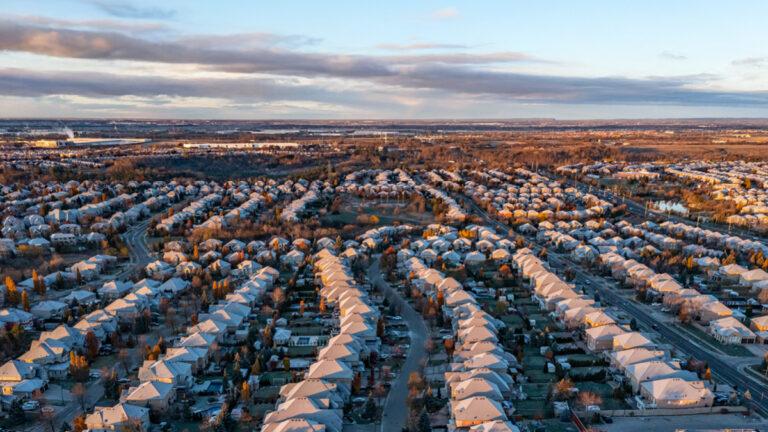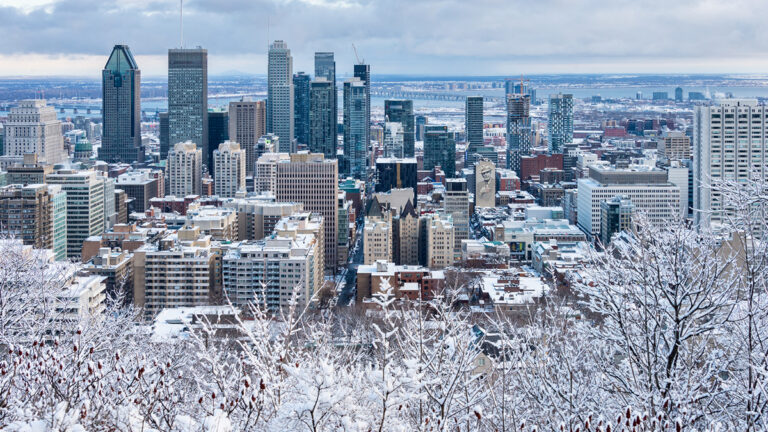
Canadians are increasingly opting for winter staycations as ongoing trade tensions with the United States make cross-border travel less attractive. Heightened uncertainty, fluctuating costs, and a more complex border environment are prompting many households to look inward for their winter plans. Combined with lower borrowing costs, domestic winter destinations are looking more appealing to snowy sports lovers this season.
According to the 2025 Royal LePage® Winter Recreational Property Report, home prices in Canada’s popular ski regions1 rose moderately in the first nine months of 2025. Nationally, the median price of a single-family detached home increased 3.8% year over year to $982,000.
“Following a year of sluggish activity and stagnant prices in 2024, the real estate markets in Canada’s most popular ski destinations rebounded in 2025. Modest interest rate relief and a growing ‘Buy Canadian’ mindset helped reignite demand for slopeside chalets and mountain retreats. While economic uncertainty continues to weigh on many urban markets, buyers seeking winter escapes are pushing ahead – demonstrating once again the resilience and enduring appeal of Canada’s recreational regions,” said Phil Soper, president and chief executive officer, Royal LePage.
Recreational real estate markets across the country have proven to be more resilient and stable than major urban markets over the past year, with strong demand and increases in sales activity and prices. A majority of the recreational real estate markets covered in the report (89%) recorded a year-over-year increase in sales activity in the first nine months of 2025, and more than three quarters (78%) recorded an increase in the median price of single-family homes.
Domestic demand drives sales growth
Political and economic tensions between Canada and the United States, and as a result, the ‘Buy Canadian’ movement – which has encouraged Canadians to direct their time and money toward domestic products, services and destinations in response to the tariffs imposed by the U.S. – are changing how and where Canadians are choosing to spend their vacations. Statistics Canada has reported year-over-year declines of Canadian-resident return trips by automobile from the United States every month this year to date.2
It has also had a ripple effect on the real estate market, including within recreational regions. Forty-seven per cent of Royal LePage recreational property experts reported more inquiries from domestic buyers of recreational real estate. Meanwhile, 27% of experts have noted an increase in the number of American buyers inquiring about recreational real estate in their area over the past year.
“With relations between Canada and the U.S. running cool, more Canadians are choosing to spend their winter vacations at home,” said Soper. “Domestic destinations are benefiting as travel habits shift and people look for escapes that feel close, comfortable, and truly Canadian.
“At the same time, the favourable exchange rate is drawing increased interest from American buyers looking for a foothold in our winter recreational markets. Recreational properties are generally exempt from Canada’s foreign-buyer restrictions, which adds another layer of appeal for U.S. purchasers exploring seasonal retreats north of the border. It’s a specialized segment of the market, and buyers are best served working with a recreational property expert, not an urban agent. You want someone who knows the many unique aspects of owning a country getaway,” noted Soper.
According to a recent Royal LePage survey, conducted by Burson, more than half (54%) of Canadians who currently own residential property in the U.S. say they are planning to sell within the next year, among whom a majority (62%) credit the current political administration as the main reason.3 Thirty-three per cent of them say they are motivated by other factors, such as personal and financial reasons, and another five per cent say it is due to increasingly extreme weather conditions, like hurricanes, flooding and forest fires. When asked if they plan to reinvest the proceeds of the sale of their U.S. home into the Canadian real estate market, almost one third (32%) of respondents who have recently sold or are planning to sell within the next year answered ‘yes’.
Highlights from the national release:
- 16 of the 18 recreational markets in the report recorded an increase in sales this year.
- 47% of Royal LePage recreational property experts reported that lower interest rates have encouraged more buyer demand in their market this year.
- Eighty per cent of Royal LePage recreational property experts across the country reported similar or more demand in their respective regions for recreational homes compared to 2024, while 47 per cent reported an increase in inventory, and 47 per cent reported an increase in the average number of days on market.
1Median price and sales data for 18 popular ski regions across Canada was compiled and analyzed by Royal LePage for the periods between January 1, 2025 and September 30, 2025, and January 1, 2024 and September 30, 2024. Data was sourced through local brokerages and boards in each of the surveyed regions. 2024 price data may vary from the 2024 Winter Recreational Property Report as a result of updated transaction records from local real estate boards.
2Leading indicator of international arrivals to Canada, October 2025, Statistics Canada, November 12, 2025
3Political tensions prompt U.S. property sell-off by Canadians; many plan to reinvest in domestic real estate, August 27, 2025






